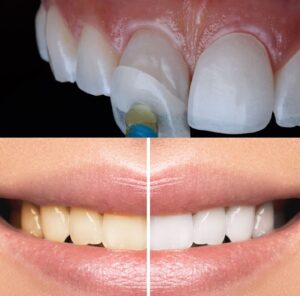
Understanding Bruxism: Causes, Symptoms, and Treatment Options
Introduction Bruxism, more commonly known as teeth grinding, is a condition that affects many people, often without them even knowing it. Whether it happens during
Mon, Tue, Thu, Fri: 7:30AM – 3:30PM Wednesday: 9:00AM – 5:00PM
Call Us: +1 (403) 273-6959
Mon, Tue, Thu, Fri: 7:30AM – 3:30PM Wednesday: 9:00AM – 5:00PM
Call Us: +1 (403) 273-6959
Bruxism, more commonly known as teeth grinding, is a condition that affects many people, often without them even knowing it. Whether it happens during the day or at night while sleeping, bruxism can lead to various dental problems and discomfort. Understanding what causes bruxism, recognizing its symptoms, and exploring available treatment options can help manage this condition effectively and improve dental health.
Although typically a subconscious habit, bruxism can have significant long-term effects if left unaddressed. Early identification and intervention are vital to preventing more serious complications.

The exact causes of bruxism are not entirely understood, but several factors are known to contribute to the condition:
Understanding these causes can help identify why bruxism occurs and guide effective management and treatment options.
Identifying the symptoms of bruxism, or teeth grinding, is crucial for early intervention and treatment. Common symptoms include:
Recognizing these symptoms can help seek timely dental advice and prevent more severe dental or health issues associated with bruxism.
Treating bruxism typically addresses the underlying causes and mitigating the effects on the teeth and jaw. Here are several effective strategies and treatment options:
Combining these treatments, tailored to the individual’s specific causes and symptoms, can significantly alleviate the discomfort and dental issues associated with bruxism. Regular dental check-ups are essential to monitor the condition and adapt treatment plans.
If you or a loved one is experiencing symptoms of bruxism, don’t wait to seek help.
Dr. Brent MacDonald’s clinic in NE Calgary, AB, provides comprehensive treatment options tailored to your specific needs. Schedule an appointment today to discuss your concerns and begin a personalized treatment plan to alleviate pain and protect your dental health.

Introduction Bruxism, more commonly known as teeth grinding, is a condition that affects many people, often without them even knowing it. Whether it happens during

When you’re missing teeth, it’s not just about looks – it affects how you eat and speak, especially if you’re missing several or all teeth.

When you’re missing teeth, it’s not just about looks – it affects how you eat and speak, especially if you’re missing several or all teeth.